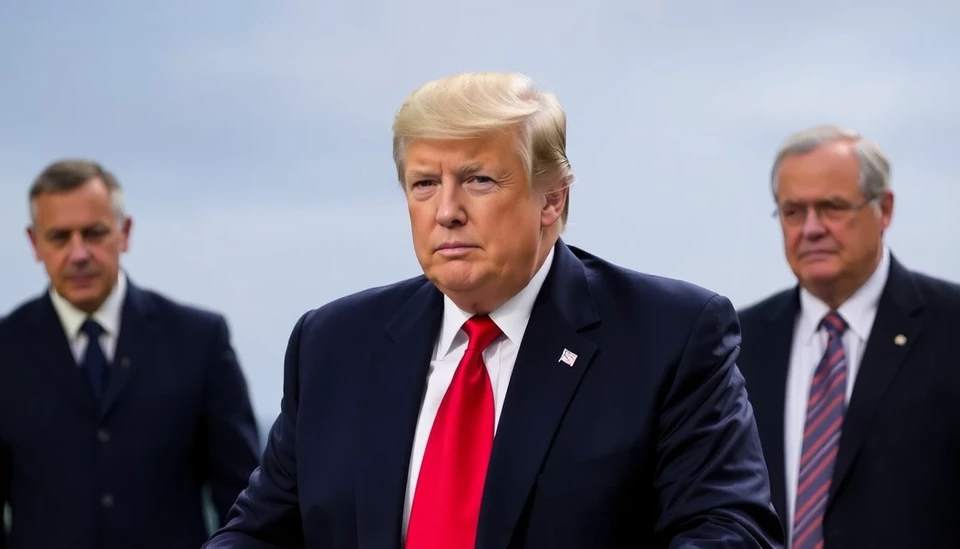
In a recent statement, former President Donald Trump hinted at the possibility of imposing additional tariffs on goods imported from the European Union (EU) and Canada. This announcement comes as a response to perceived unfair trade practices and a reevaluation of trade relations between the United States and its neighbors across the Atlantic and the northern border.
The potential for increased tariffs raises significant questions about the future of U.S. trade policy. During a campaign event, Trump expressed that if the EU and Canada continue their policies that he views as detrimental to American interests, he would not hesitate to impose higher tariffs on their exports. "If those tariffs help, we will do it," he stated, emphasizing his commitment to protecting American jobs and industries.
This announcement is timely, given the ongoing discussions regarding global trade dynamics. Historically, Trump's administration focused on renegotiating trade agreements, and many believe he intends to continue that trajectory. His comments indicate a recognition that past tariff strategies had varying degrees of success, but the former President remains convinced that leverage through tariffs can be a tool for achieving favorable outcomes for American businesses.
The complexity of international trade is highlighted by Trump's remarks, particularly as they pertain to the current economic climate. With inflation concerns and global supply chain disruptions still affecting economies worldwide, the implementation of new tariffs could complicate relationships not only with Canada and the EU but also with various trading partners around the globe.
Critics of Trump’s tariff policies argue that such measures often lead to retaliatory responses, which could escalate into trade wars that may hurt consumers and businesses domestically. Additionally, experts point out that increased tariffs can contribute to higher prices for American consumers, contradicting the administration's goal of economic improvement.
As voters look toward the upcoming election, Trump's focus on trade issues appears to resonate with a significant segment of the American electorate, who feel that their economic stability is threatened by global competitors. This strategy could be pivotal in shaping Trump's platform as he campaigns for the presidency once again.
While the specifics of which goods would face new tariffs remain unclear, the potential backlash from key trading partners looms large. Both the EU and Canada have historically been vital allies and significant trade partners for the United States, and any further escalation in tariffs could hinder bilateral cooperation on other important issues, including climate change and security matters.
In conclusion, Trump's recent declarations concerning potential tariffs on the EU and Canada underscore a continued emphasis on an aggressive trade policy. This approach aims to galvanize domestic support ahead of the election, even as it risks straining relationships with key partners. The business community and consumers alike will be watching closely to see how these potential trade policies evolve and what impact they may have on the broader economic landscape.
As developments unfold, the global trade community is left to contemplate the implications of such policies and the uncertain path that U.S. trade relations may take in the coming years.
#TrumpTariffs #TradePolicy #EconomicImpact #USEuropeTrade #USCanadaRelations
Author: Rachel Greene




